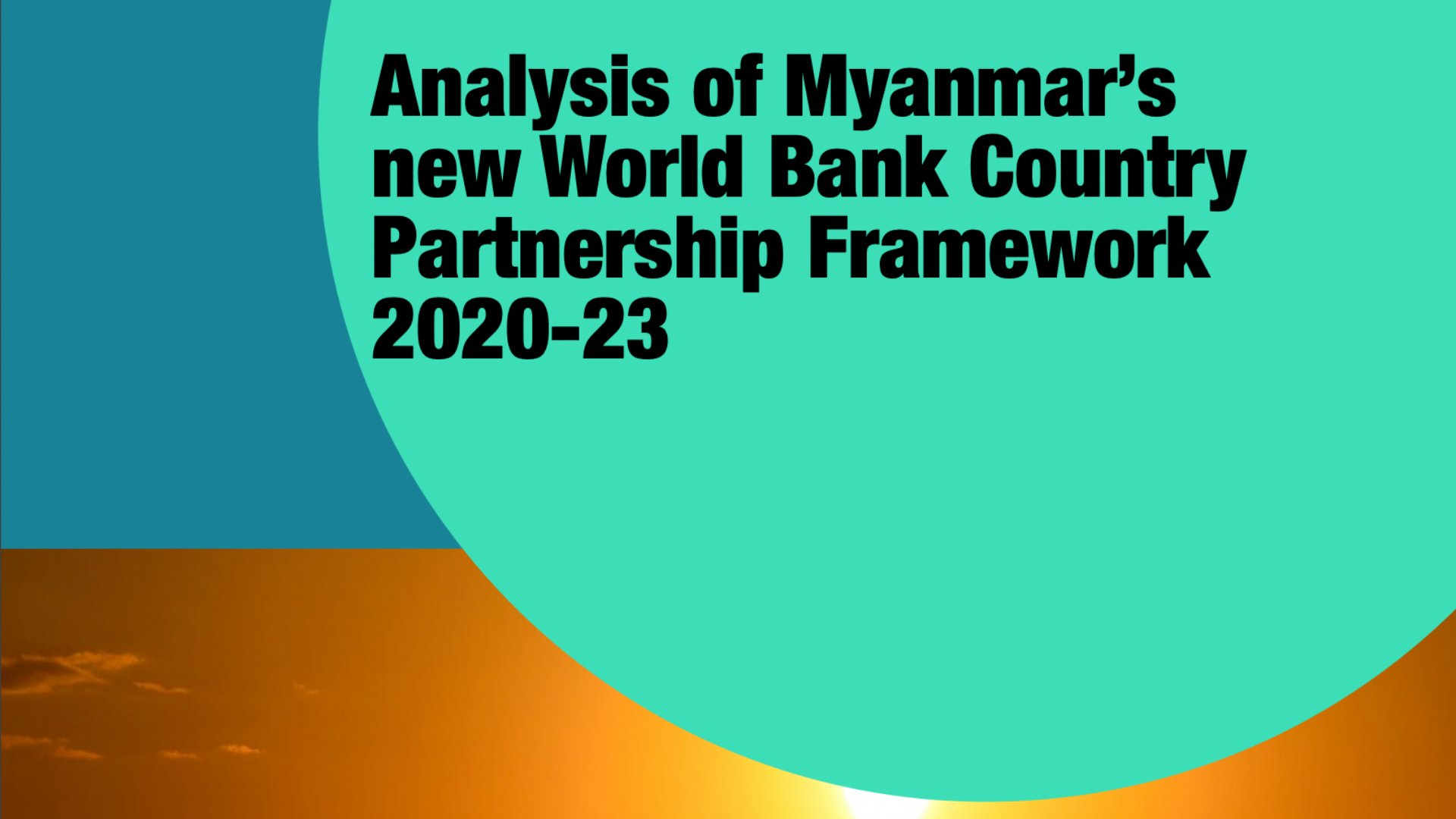- 24.08.2020
In May 2020, the World Bank approved a new country strategy for Myanmar – the Country Partnership Framework (CPF) – which will guide all its investments into the country for the next four years. As a major donor to Myanmar, in sectors including energy, conflict and agriculture, what the World Bank prioritises can heavily influence the development path Myanmar will take in these critical next few years as it transitions to democracy and struggles with internal conflicts.
New analysis by Recourse, together with Myanmar partners Natural Green Alliance and Save the Natural Resource, examines the new strategy and assesses how far it integrates civil society’s concerns. The analysis is available in English and Burmese.
The process for defining the new strategy didn’t get off to a good start. Early on, civil society raised concerns about the flawed consultation process, which saw the Bank leaving key organisations off the invitee list and spanning across a time period when many were on national holiday. Significantly, the Bank did not provide key background documentation, most importantly the full Systematic Country Diagnostic (SCD) which was not made public until after the consultations had already started. The Bank only published a summary of this vital document in Burmese. The full CPF was finally made available in Burmese in mid-August, three months after its approval. The full SCD has still not been made available in the local language – meaning it is inaccessible to the vast majority of the population.
There is some positive news in the strategy. Importantly, in line with civil society demands, the World Bank commits that “no investments will be made for coal-based energy” and that it will support Myanmar to “steer clear of investing in coal generation.” However, it stops short of banning other types of fossil fuels, such as natural gas, which featured strongly in the previous strategy. Other uses of coal are also not excluded, such as the World Bank’s private sector arm, the International Finance Corporation’s (IFC), investment in Shwe Taung Cement, which involves coal mining and burning of coal for industrial use. Continued support for gas could divert finance away from investments in renewable energy options – essential for combatting climate change – which are only given limited priority in the strategy, and then only in the later years and without dedicated targets. Instead there is a target for additional installed power generation from “conventional energy sources”. Encouragingly, the Bank commits to support Myanmar in achieving its universal energy access goal, but again there are no specific targets included. This matters, because the Bank will ultimately use these indicators to assess the success of the strategy and will measure new projects against them.
Other concerns include a heavy emphasis on private sector driven solutions. Civil society has criticised this bias towards on a number of fronts, including that it dilutes transparency and accountability of investments, ultimately undermining democracy. Promotion of public-private partnerships (PPPs) forms part of this focus, but this much criticised-model is rife with concerns about secrecy and lack of accountability. The IFC supported the construction of Myanmar’s first PPP in the energy sector, the Myingyan gas power project, but research by Recourse found that the contracts for the project have not been disclosed publicly, meaning that communities and civil society in Myanmar have no idea about the cost of the electricity, the relative risk-sharing between the public and private sector, or even whether the project represents good value for money. All of these concerns are particularly relevant in Myanmar, as a fragile and conflict-affected state, and also beg the question how rural poor and vulnerable communities will benefit.
The next significant opportunity for civil society to influence the World Bank’s Myanmar strategy will be the mid-term review, which will look back at progress to date and update priorities. The Bank is again obliged to consult, and it is essential that it learns from the flawed CPF process and seeks genuine interaction, to ensure that its activities are in line with civil society priorities. For more information on how to engage in this process, see Recourse’s South East Asia Civil Society Guide on Influencing World Bank Strategies.

